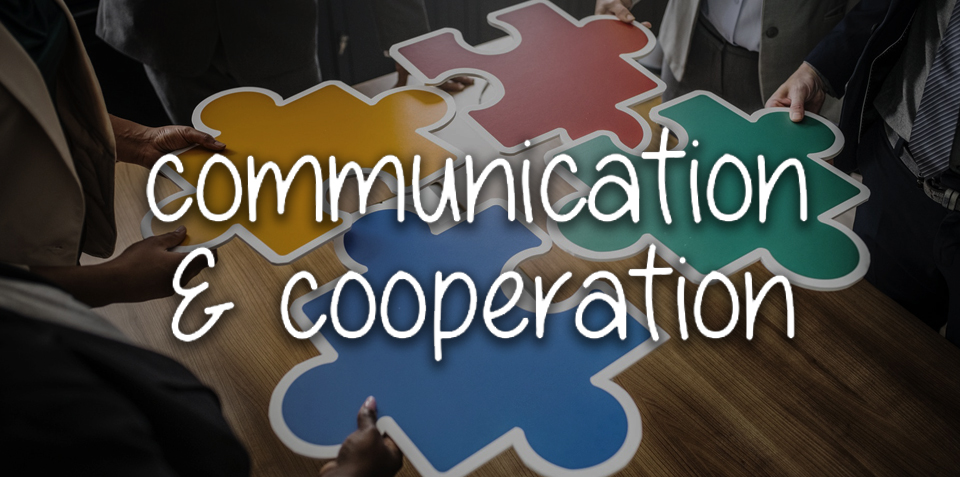To complete an escape room, you’re going to need a team. It can be small or large, but no one can do it alone. That’s not a challenge, either. The games we offer are specifically designed to require teamwork and communication.
Because everyone thinks differently, all players bring something different to the table. Some people are good at finding things, others good with synthesis or abstract thinking. For a deeper look at what kind of skills are useful in an escape room, read our original blog post here. As your team members begin to bounce ideas off of each other, you’ll learn more about the way people think. This is helpful because the skills used during your game can also be useful in real life—logic, time management, or performing under pressure!
But working with a team is about more than having a sounding board. Escape rooms also provide a unique bonding experience by asking you to communicate with other players. For example, if you have an idea what a certain puzzle piece might be used for, you’ll have to explain that concept to the other members of your team. If they don’t understand, you might have to rephrase or demonstrate your idea until you can reach a solution. Once you’ve solved the puzzle, you might have to share your answer with other players so everyone can try the correct code on the locks. And after that, you’ll have to let everyone know what was done and what pieces were used. Especially for the last step, communication is vital.
In most of our games, all of the game pieces are used only once. No key opens more than one door, no code opens more than one lock, no puzzle gives more than one solution. That’s why it is so important for team members to talk to each other, keep their head in the game, and stay organized. Without communication, it’s easy for one person to solve a puzzle on their own and leave their team members struggling over clues that have already been used. Especially in a time sensitive situation, that can mean the difference between victory and failure.
That’s an important thing to keep in mind while you’re playing: everyone is working together. Running around and solving everything yourself might seem like a good idea in the moment—especially if you feel you’re making progress—but it often leaves your team at a disadvantage. This can become especially hard when multiple people attempt to solve things on their own. When all of the puzzles are connected, but your team members aren’t, it’s only a matter of time before you hit a dead end. The only thing you should be competing against is the clock.
It comes down to another important thing you can learn about your friends and coworkers in an escape room. Who is good at puzzles and who is good organization? Who is skilled at finding clues and who knows how to put them together? But also, who is most likely to take charge versus those who might stand back? Who thinks out loud and who needs silence to think? Who’s more likely to go rogue and who’s more likely to wait for clear instructions?
The pressure of the game can bring out your personalities. That’s one of the reasons escape rooms work so well as ice breakers, or as team building exercises. Whether it’s a day out with your coworkers, your classmates, or your friends, it will be a great way to bond and learn about each other.
So when you’re playing just remember: there’s no “I” in team, and there’s only a “me” if you’re spelling it wrong!
